Friesland, a picturesque water province nestled in the northern part of the Netherlands, lures recreational sailors with its winding waterways connecting charming towns, lakes, forests, and incomparable landscapes. The dense network of river ports, towns, and channels offers ample mooring options at every corner. You can effortlessly sail from one town or canal to another without worrying about where to moor. The region has a carefree spirit and offers sufficient solitude when needed.
Why Friesland?
Friesland is the perfect playground for all fans of inland water sports activities. The area is famous for its laid-back atmosphere, ideal for hassle-free boating. The most convenient vessel for cruising Friesland is likely the houseboat. Still, people also rent motorboats or sailing boats, especially when adding large lakes such as IJsselmeer and the Wadden Sea to their itinerary.
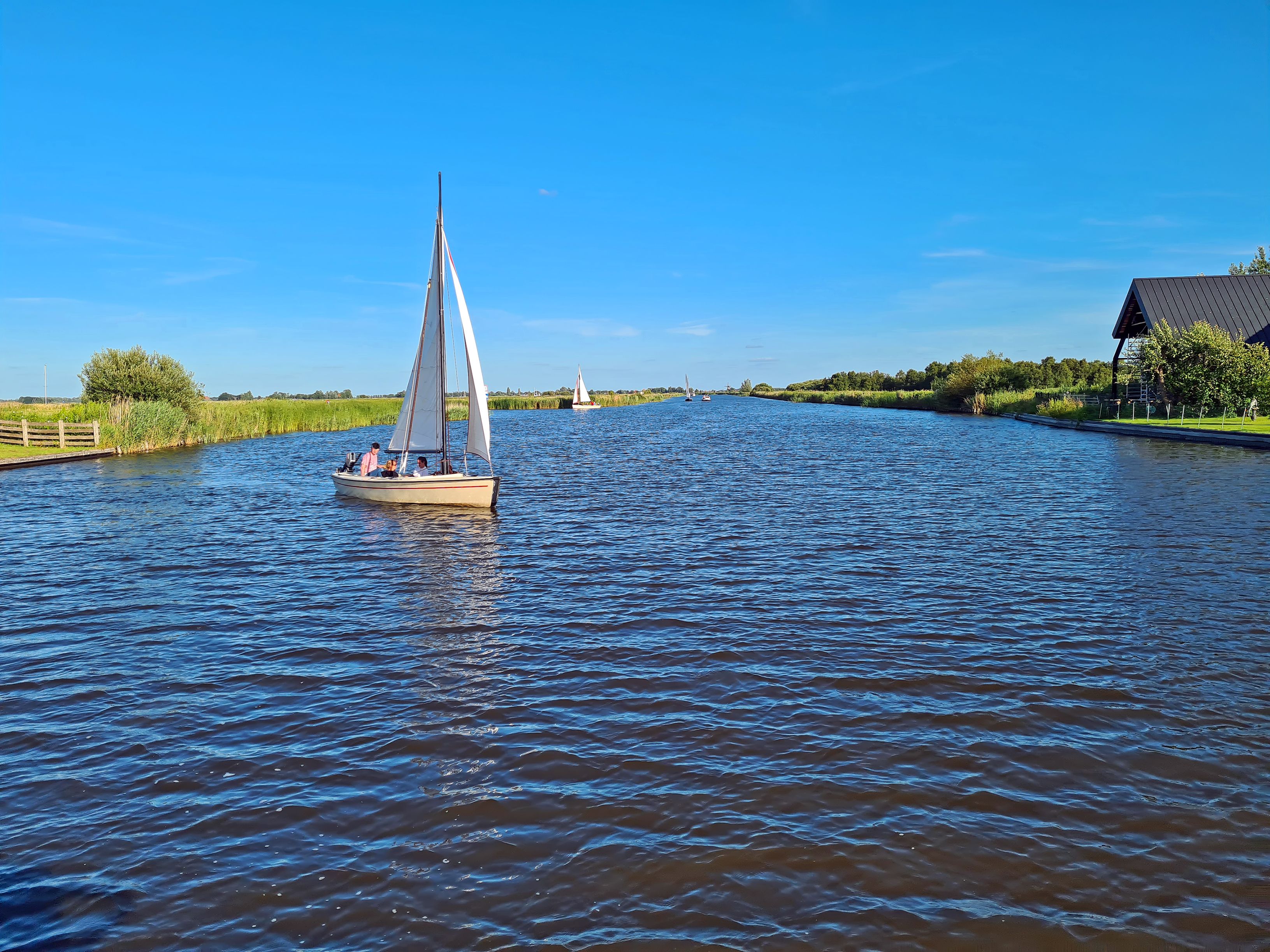
The Frisian people are known for their hospitality, regional pride, unique language, and contagious passion for water sports. You may witness several water competitions when the whole region comes alive, and the towns become incredibly vibrant. Europe's largest inland sailing event, the Frisian sailing competition “Sneekweek,” or the typical Frisian sport “fierljeppen” (jumping across a canal with a long pole), are unforgettable events to observe.
The willingness to help is another characteristic of the locals. Free moorings marked with the sign Marrekrite are available for up to three days for a voluntary fee. Dozens of such moorings are located in the most beautiful parts of the region.
Friesland consists of 30 interconnected lakes and small cities. The famous group of towns nicknamed Elfstedentocht (Eleven Towns) offers a 200 km long ice-skating route in winter and a boat route in summer. The interconnected canals make daily planning flexible and itineraries easily adjustable. You don't have to worry about finding a harbor or anchorage place. You will cruise carefree through picturesque towns with historic buildings, meadows with herds of horses and sheep, lush forests, and swamps. The cities are more like villages, and your boat is always within a short walking distance of the center from the port. You can sail in peace without big crowds of tourists.
When to go?
The period from June to September is the best for water-related activities. Most events and gatherings take place in the summer. However, Friesland is captivating in every season, and locals will show you how to recharge even in fall and winter. They have a famous attitude towards this period called “opfriesen” (literally meaning “freshen up”), showing that the cold fresh air with occasional rain can be surprisingly attractive.
Weather and sailing conditions
The local climate is moderate and often humid. Winters are not too cold, nor are summers excessively warm. However, waterproof jackets are a must-pack item as you are in Holland after all.
In the Netherlands, boats are allowed to sail at a maximum speed of 9-12 km per hour on lakes and 6 km per hour in canals. A sailing license is not required when renting a boat under 15 meters long, but it is highly recommended to have some level of experience, especially when going to the larger lakes. Learn more about Dutch sailing licenses here.
Harbors are well-connected by waterways and most have excellent facilities. While moorings in harbors are not free, you can still head to Marrekrite landing places instead. If you need to cross moveable bridges, you will pay a “bridge watcher” to open it and watch the show unfold. Bring enough cash for the trip. Often you will find a typical Dutch wooden shoe (clog) attached to a fishing rod. Insert the coins inside the clog and the bridge will be opened for you.
Suggested Itinerary for 7 Days
You can see a lot in Friesland but take your time. There are a plethora of cruising routes for all levels of crews. Your itinerary can be themed, such as cruising through forests, sailing along old mills, or exploring the route through the Eleven Cities.
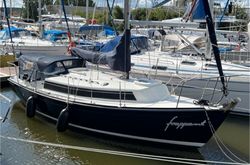
Snapdragon 29 | Frappant
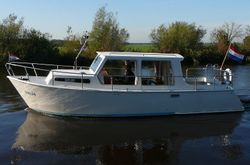
Merenpoort 845 | Freule
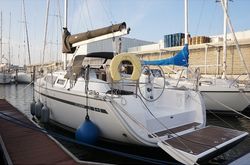
Bavaria Cruiser 33 | Starship
Our suggestion is to experience the best of Friesland in one week - a combination of cruising through cities, villages, meadows, and beautiful nature. You can begin your free Friesland vacation in Drachten, a town with plenty of vessels to choose from. From Drachten, head to the nature park De Alde Feanen near Warten to enjoy the local flora and windmills. On this circular route from Drachten, you can visit towns vibrant with water sports such as Sneek, Grou, and Terherne, and historical towns with enchanting buildings such as Sloten and Lemmer. In Heeg, you can see the old traditional Dutch boats and dance the whole night. Woudsend is a perfect place to buy local products at a market. Lemmer will astonish you with a UNESCO-listed monument. On your way back to Drachten, relax in Akkrum, another typical charming village.
Cruising in Friesland is easy and flexible. There are numerous options to reach gorgeous places with many canals and waterways at your disposal. Stavoren, Koudum, Bolsward, and Workum are other places worth adding to your itinerary (or the next one).
With this suggested sailing itinerary, you can cover approximately 130-150 kilometers (km).
Day 1 (Saturday): Check-in at a marina in Drachten
Day 2 (Sunday): Drachten - Warten - Grou (21 km)
Day 3 (Monday): Grou - Terherne - Sneek (16 km)
Day 4 (Tuesday): Sneek - Lemmer (23 km)
Day 5 (Wednesday): Lemmer - Sloten - Woudsend/Heeg (16-20 km)
Day 6 (Thursday): Heeg - Akkrum (23 km)
Day 7 (Friday): Akkrum - Drachten (19 km)
You can find the route on Google Maps on this link.
Day 1 (Saturday) - Drachten
Drachten is the second-largest town in Friesland. It's a suitable starting point for your Friesland adventure and for making necessary provisions. After check-in and familiarizing yourself with your new floating home, head to the center and stroll alongside the canals. During the first two weeks in August, one of the most important water-related events, skûtsjesilen, takes place in Friesland. It's an old regatta race with flat cargo boats, and Drachten is a perfect place to observe the race. Get ready to have a blast in Friesland!
Food enthusiasts can delight their taste buds in the city's restaurants, such as the family restaurant Omnia with traditional cuisine or Nazareth with Lebanese dishes.
Day 2 (Sunday): Drachten - Eernewoude/Warten - Grou (21 km)
Sunday is a perfect time to enjoy Frisian nature and meadows. Head to the charming fishing village of Eernewoude or continue further to Warten. There are several mooring options in this area, thanks to Marrekrite, and the park is easy to navigate. This lovely route leads through the picturesque area of Princenhof in the De Alde Feanen nature park, full of ponds, swamps, reed beds, and thickets. Hobby photographers and bird-watching fans will have a wonderful experience here.
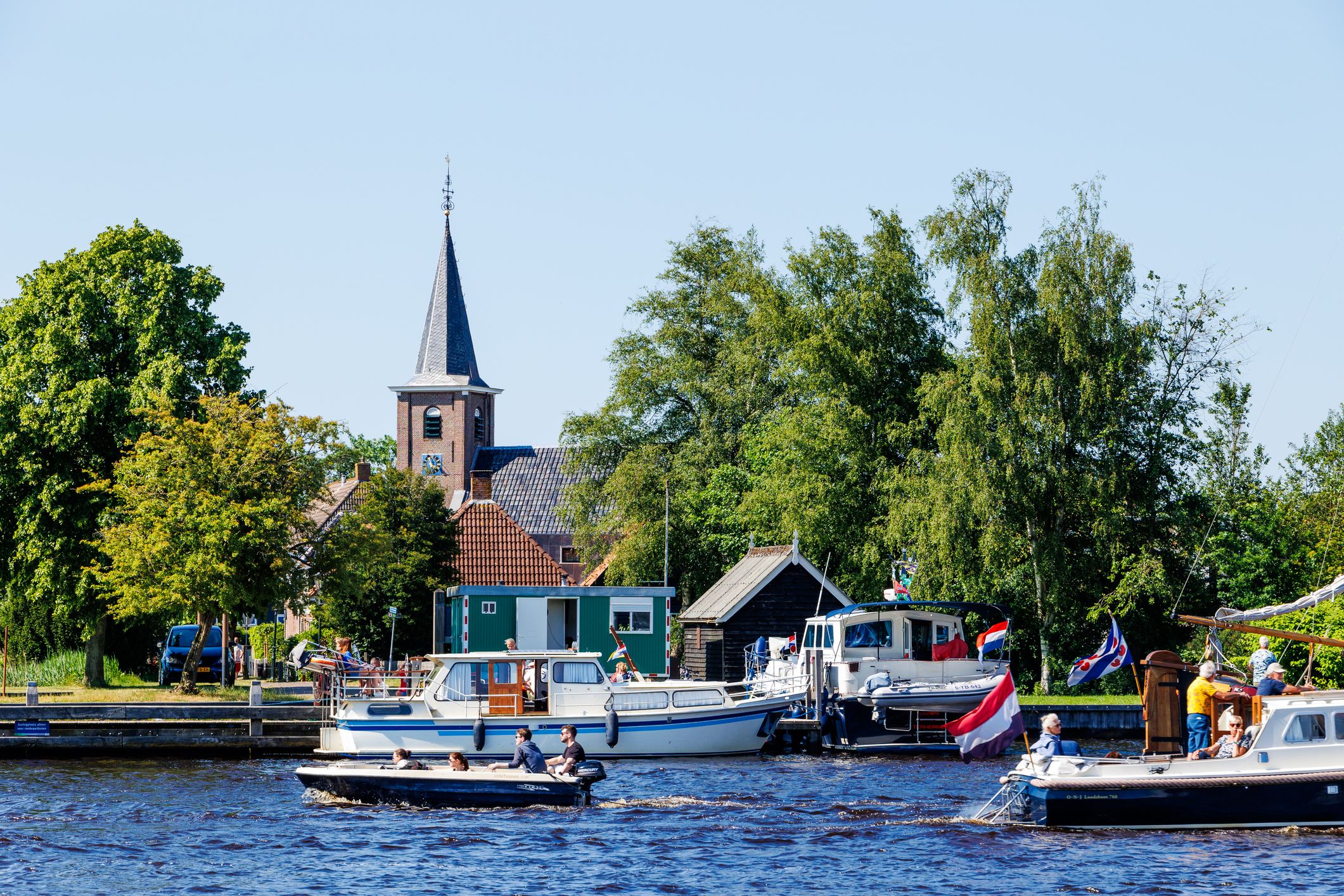
For the evening and overnight stay, choose a berth in Grou town. You can moor at the marina Grou situated on Meeresweg Street. Grou has grown from a small village into an international town, offering plenty to do and see for all ages. The first race of the annual Skûtsjesilen starts in Grou. A walk through the city is a trip to the past, showcasing the long history of fishing and trade. The museum Heart of Friesland sheds light on local legends, famous families, and traditions. The Ferry Route is an entertaining experience as well - just follow the beautiful Pontjesroute. Grou offers several outstanding restaurants to cater to all your needs, some located right by the river, such as Restaurant de Kade Grou.
Day 3 Grou - Terherne - Sneek (16 km)
The itinerary continues with visiting the next memorable delightful towns. Stop by Terherne, a small water sports village famous among Dutch people for the themed amusement park Kameleon, which explains traditional Dutch kids' stories. If you have children in your crew, they will love this interactive park with its small story village.
Tonight, stay in Sneek, a town with a pleasant center featuring shops and bars with terraces. An unmissable attraction is the Waterpoort, a national landmark from the 17th century. You can moor on both sides of the city canal. Sneek is relatively large compared to the average Frisian town, so you can do some shopping here as well. If you happen to be in Sneek during the Sneekweek (starting from the first Friday evening before the first Saturday in August), you can enjoy good music and a very festive atmosphere.
Day 4 Sneek - Lemmer (23 km)
Lemmer is a must-see town when you are in Friesland. Located next to the IJsselmeer lake, the town has a long maritime history. Three standout activities include a walk through the old beautiful harbor, a swim near Lemster beach, and a stroll along the canals in the center.
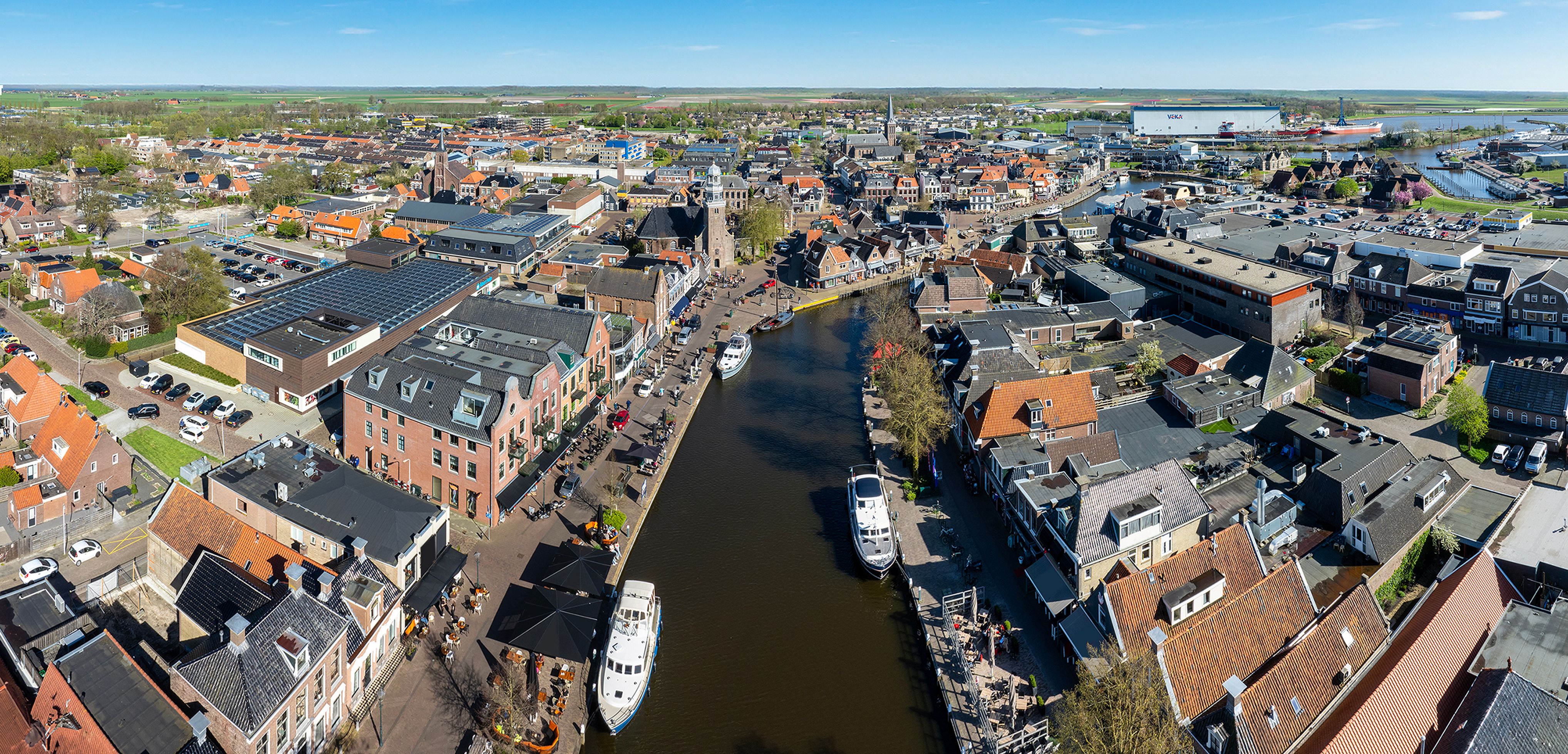
While walking, visit the world’s largest and still-operating steam pumping station, which pumps excess water from the lake. The eye-catching brick building, Woudagemaal, is listed as a World Heritage Site.
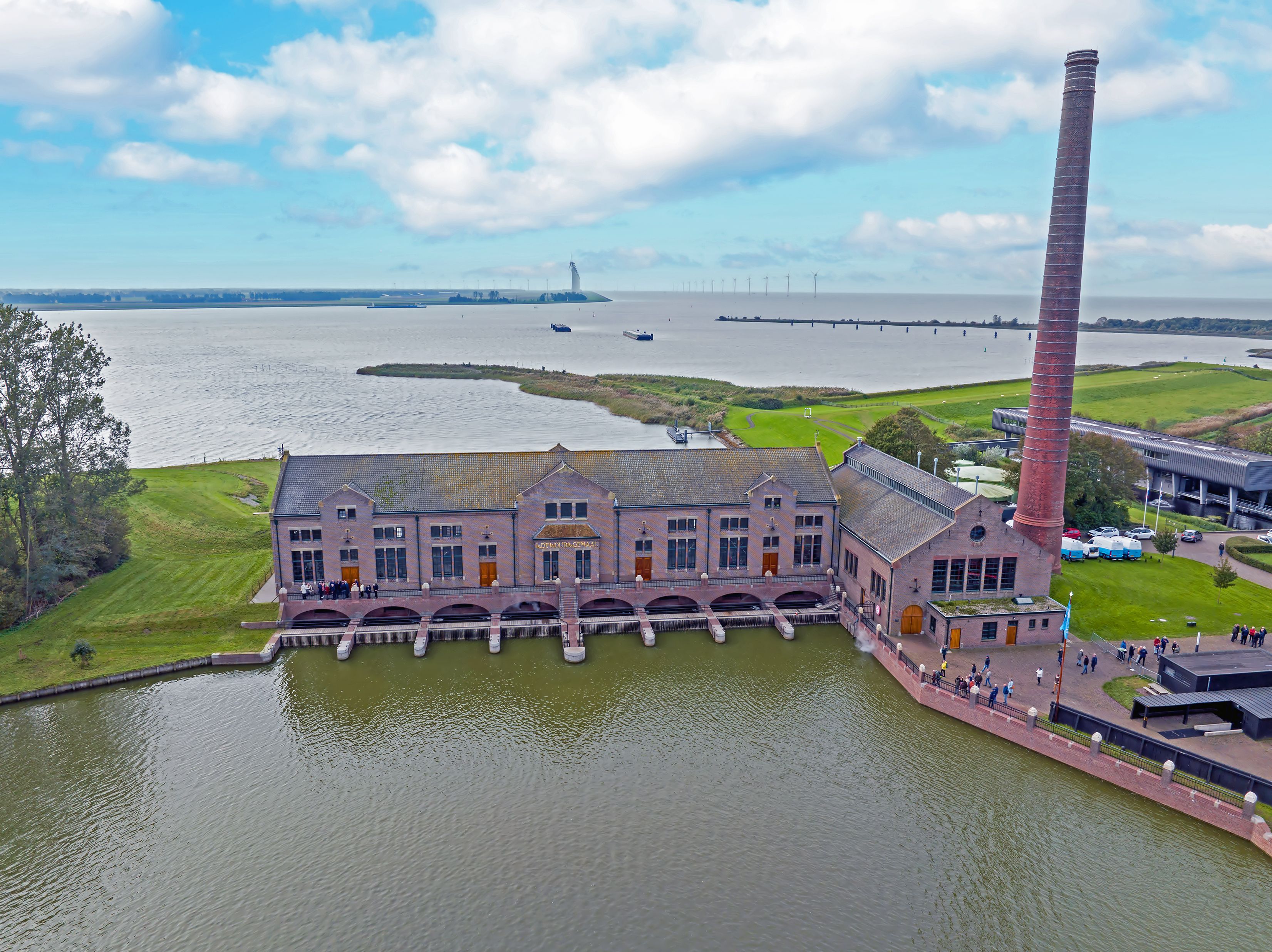
After an intense stroll, cool off at the lovely sandy beach and have dinner at the Beachclub Lemmer. The next morning, enjoy breakfast at Breimer Bakkerij, offering a variety of tasty food in a pleasant ambience. Be sure to try the local speciality, Jouster/Lemster pof.
Day 5 Lemmer - Sloten - Woudsend / Heeg (16-20 km)
On this day, visit other quaint towns rich in history and activities. The first stop after Lemmer is Sloten, the smallest town of the famous 11 Frisian cities. Because of its strategic position, the town grew into a fortified city with gates. Capture a photogenic scene - an old, still-operating windmill and the Lemster Gate. If you visit on a Saturday, the mill will be open, and you can purchase various types of flour.
From Sloten, head north. Between the lakes Heegermeer and Slotermeer, right in the heart of the Frisian district, lies the old trading town of Woudsend. This town features two windmills, a curved bridge in the middle of the village, antique alleys, art galleries, and nice restaurants. You can purchase local products at the market and enjoy musical performances during the summer.
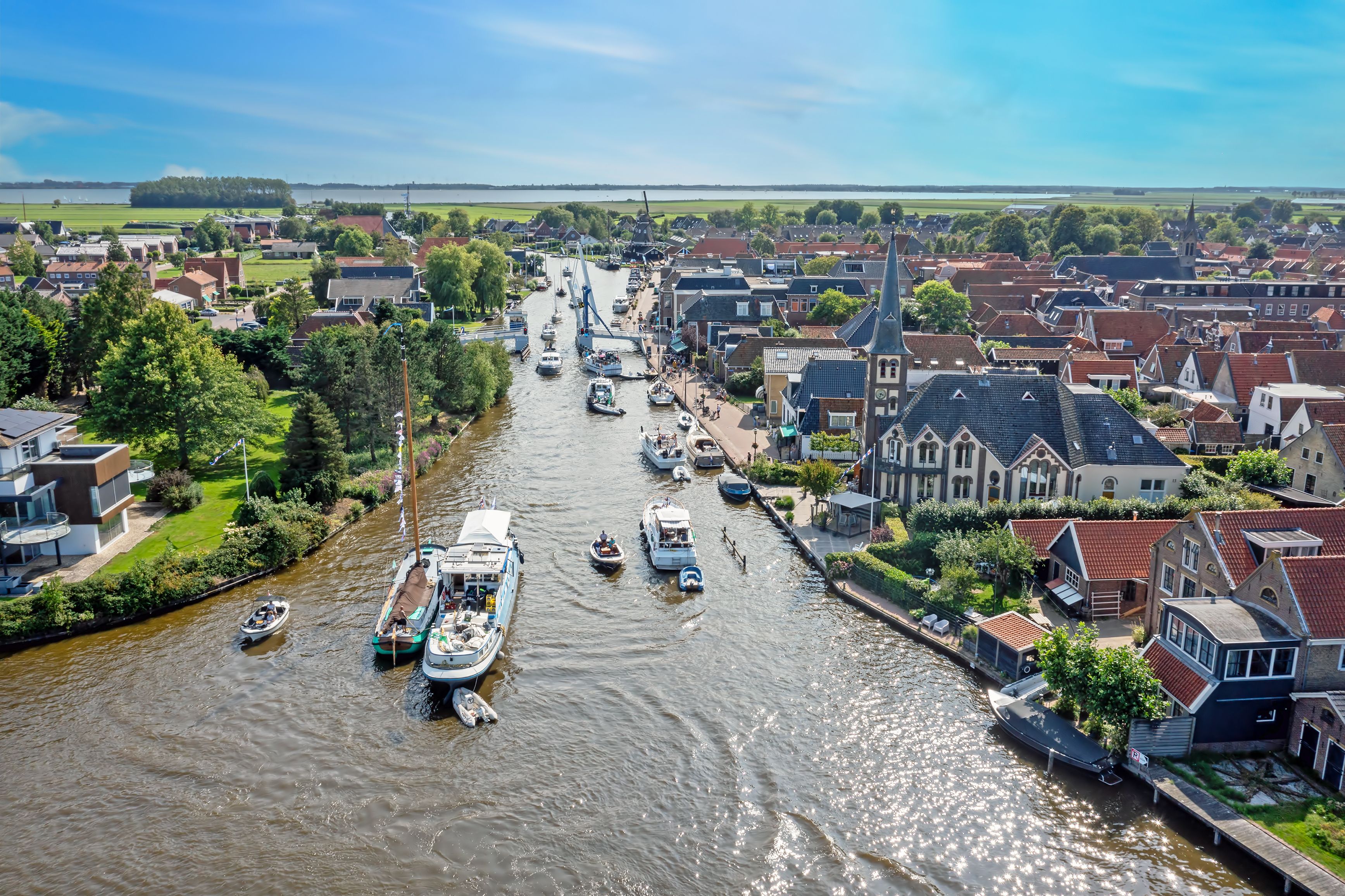
Heeg is a favourite water sports town in Friesland. Despite its small size, it is bustling with summer events, such as the Heechsimmer Festival with bands playing on a floating stage. Heeg has a rich history, dating back to when it was a famous trade town with eel as the key export product. The town maintains its authenticity and stands out in the culinary field with several cosy bars and pubs. Eel is a local speciality. For those looking to party all night, the bar d’Ald Wal is a must-visit.
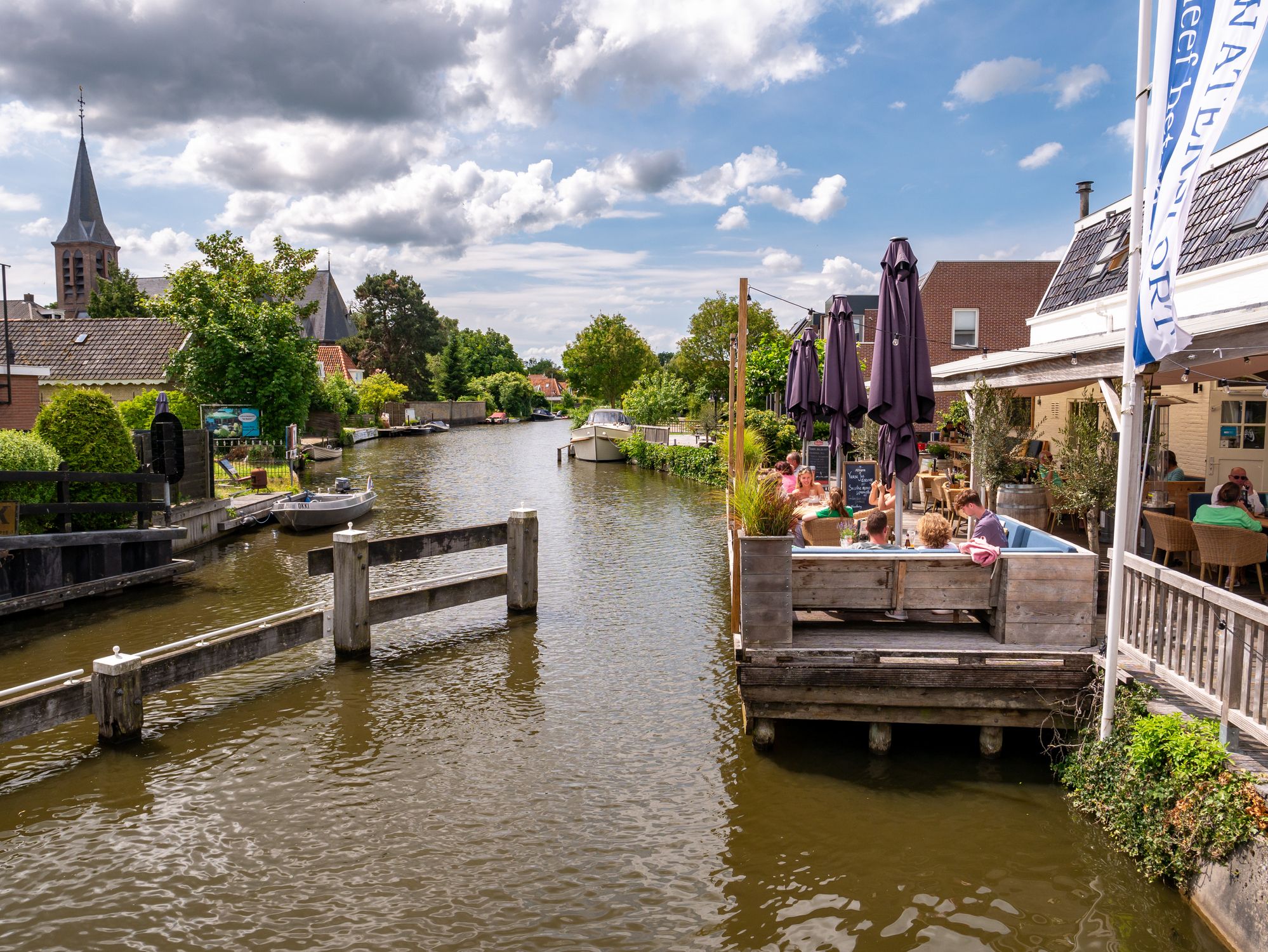
Day 6 Heeg - Akkrum (23 km)
On your way back to Drachten, spend your last night in the pleasant village of Akkrum. If you didn't have time to stop by Terherne before, you have a chance to remedy that now. In the lake Sneekermeer, there are several “Marrekrite” anchorages, such as Groote Griene, situated in the middle of green nature.
Akkrum is tiny and charming, with little noise and action. It’s a typical Dutch village inviting you to relax, drink a local beer, and reflect on your last week. You can moor in a marina at the entrance to the town, close to the highly recommended restaurant De Koken.
Day 7 Akkrum - Drachten (19 km)
This is your last chance to visit places you haven’t seen at the beginning of your Friesland holiday. We recommend taking a break in the eastern part of the Wide Le Lake at the Blue buoy mooring anchorage in front of Roekmole village.
Friesland is a memorable region, excellent for sailing and all water-related activities. If you crave a location where you can enjoy vibrant towns and also reach peace of mind in a clean environment with no smog, Friesland should be your next vacation destination. For more inspiration on where to sail in the Netherlands, read our other blog here.

Snapdragon 29 | Frappant

Merenpoort 845 | Freule

